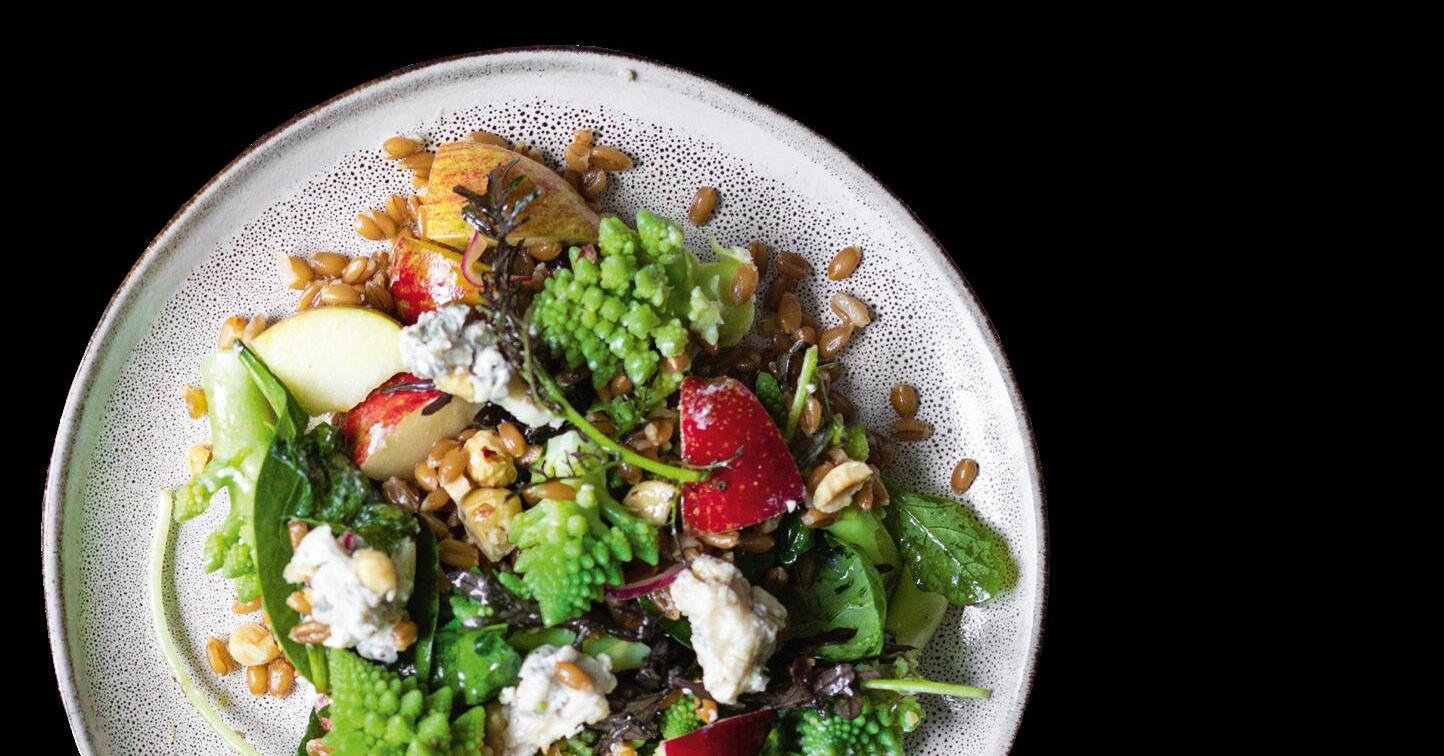
2 minute read
For a truly fair food system, BPOC farmers need to flourish
DORA TAYLOR
Writer, activist, food anthropologist and chef
In October 2022, a group of BPOC growers from London were walking among tall, wind-whipped stalks in Hertfordshire.
We were visiting David and Brenda Mwanaka, who grow white maize, a staple of southern African diets that is not grown commercially elsewhere in the UK. The trip was organised by the Rootz into Food Growing (RIFG) network, and funded by Manchester-based cooperative Unicorn Grocery. This network emerged from a report, published in 2021, to address BPOC growers’ experiences of ‘going it alone’, and it now meets regularly to socialise, share offers of work or funding and exchange tips.
The Mwanakas have become spokespeople for culturally appropriate veg. With white-dominated audiences, they focus on their Zimbabwean heritage and why they grow white maize. On our visit, the ‘why’ was implicit; most of us knew the difficulty in finding ecological, culturally relevant food, and some were already growing plants uncommon to British soils, such as okra and callaloo.
Many RIFG participants wanted to receive support while ‘not having to explain the nuances of race’, so as we roasted maize on an outdoor fire, we talked about customers, ordering systems, harvesting methods, staffing and lease agreements – all within a shared, implicit framework of being racialised growers in a white-dominated space.
At Aweside Farm in East Sussex, Sinead and Adam Fenton grow edible flowers, herbs and salads. We walked with Sinead in the sun, nibbling on leaves and swapping stories. These two visits were a rare chance to spend time in nature with only BPOC growers, because farming is the least diverse occupation in England and Wales. Although many BPOC communities possess significant agricultural knowledge, inherited from ancestors overseas or in the vibrant “playground[s]” of British allotments, they find themselves cut off from farming in the UK by racialised structural barriers.
So being on the land without being made to feel out of place is an essential healing experience. For Pamela Shor of Black Rootz, visiting these farmers “encouraged me to pursue my passion for food growing and plant seeds of hope within my own community."
“Most importantly,” she said, “I was empowered, and left feeling like this is an achievable goal. It was beautiful to see others living the dream.”
We left the Mwanakas loaded with creamy white maize, psychedelic-looking jelly melons and sweet sorghum stems, which can be chewed like sugar cane. They thanked us for taking the time to visit, for the opportunity to host. Despite their proximity to London they are not entrenched in its networks, but at London’s first Black Farmers Market we found eager mouths for these rarely seen crops amongst Brixton’s BPOC community.
For BPOC farmers to thrive, we must strengthen connections between them, provide space for healing and opportunities for knowledge-sharing. All this requires resources. Funding for BPOC growers has increased since 2020, but there are signs this is beginning to dwindle, while there is still so much to do. Sinead dreams of regularly hosting BPOC growers, but a system that encourages unpaid work and reliance on unpredictable grant funding is a serious struggle. On top of this is the racism and isolation; an unwelcome spectre in her work.
As the agroecological movement increasingly prioritises care and justice, BPOC growers are owed additional support. Promoting the flourishing of BPOC farmers is essential for a truly just food system. Let’s keep up the momentum.










